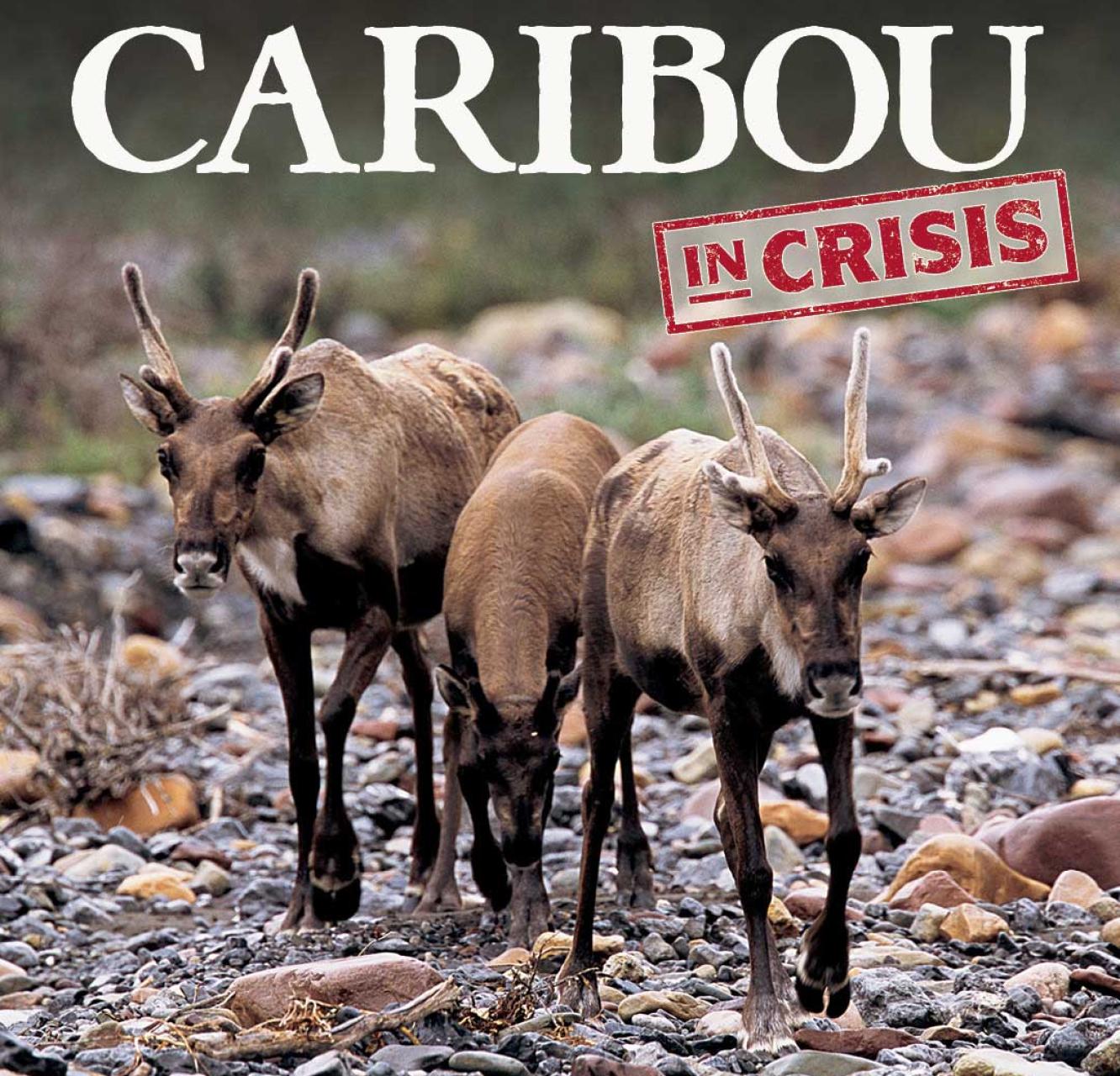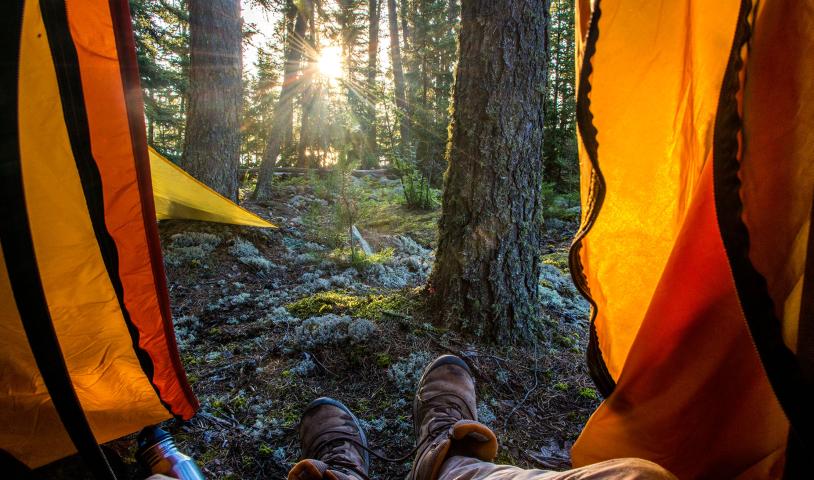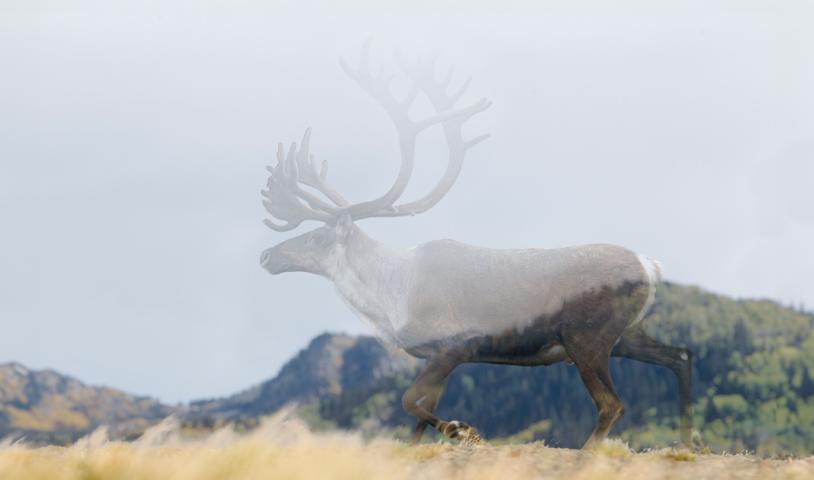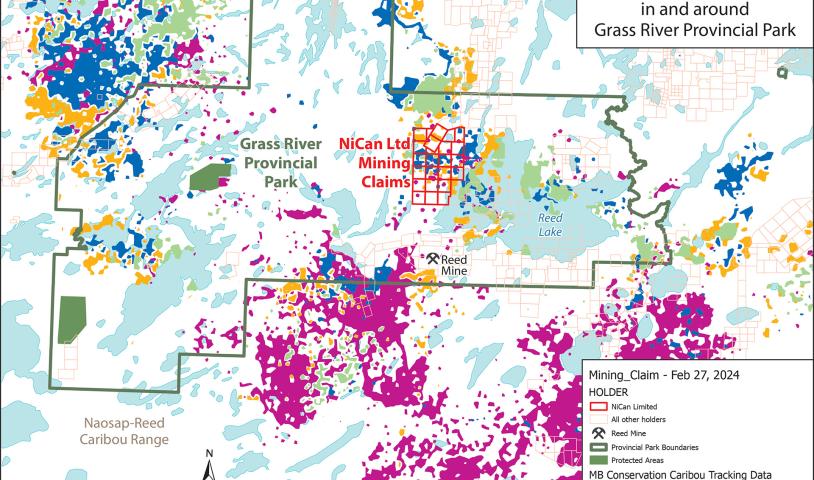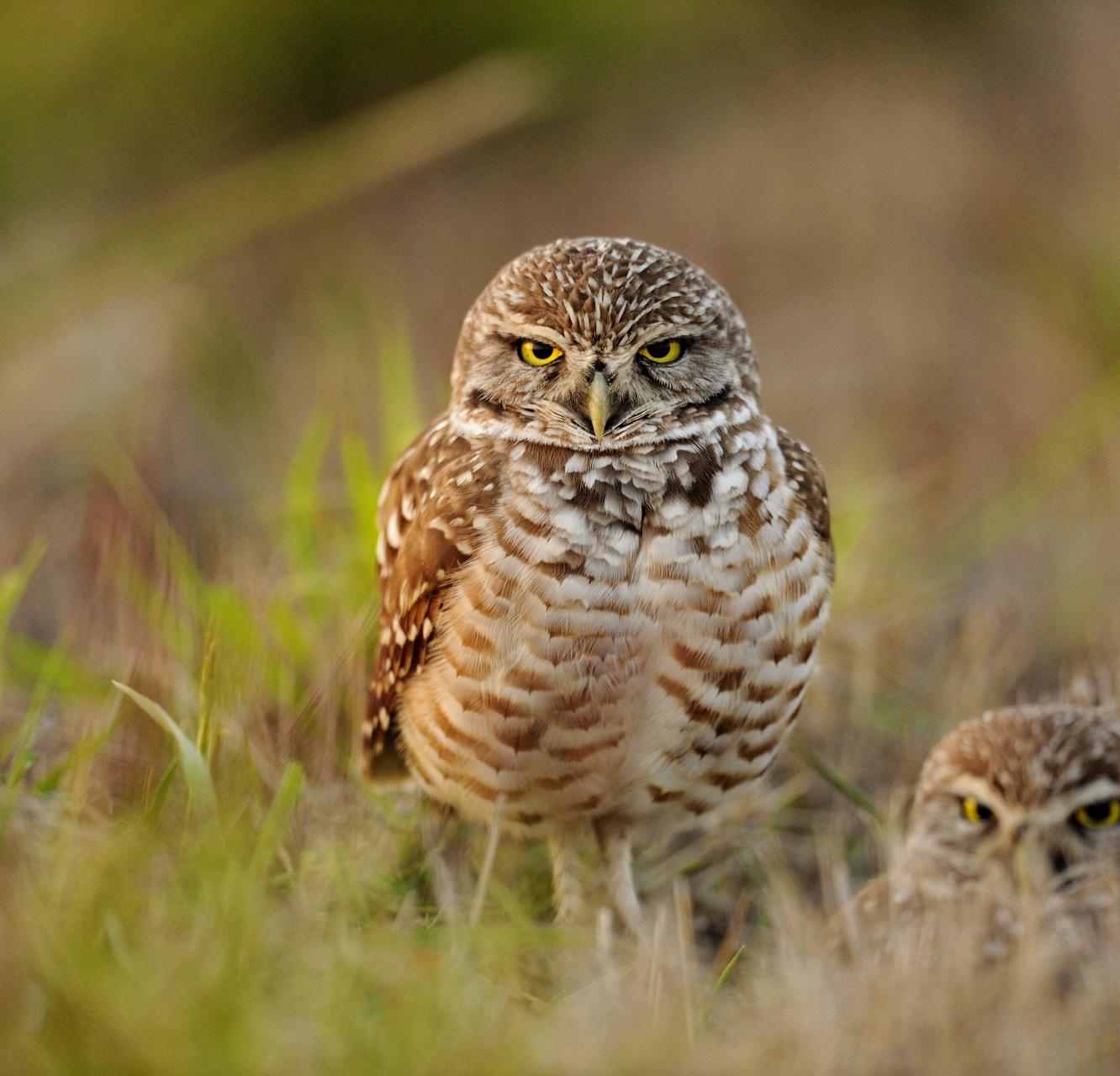Boreal Caribou
These icons need a protected home
Boreal woodland caribou, the gray ghosts of the forest, serve as a natural indicator of how well we’re caring for nature and demonstrate our respect for intact ecosystems. Spread out in primary forests across the northern part of the country, boreal caribou keep a quiet watch over wilderness. As industrial development, like mining and logging, pushes further into untouched areas, the caribou retreat. Protecting and caring for caribou reflects our commitment to preserving the boreal forest, a crucial part of the Earth’s planetary life-support system.
Take Action
Make Manitoba care for caribou — before it’s too late!
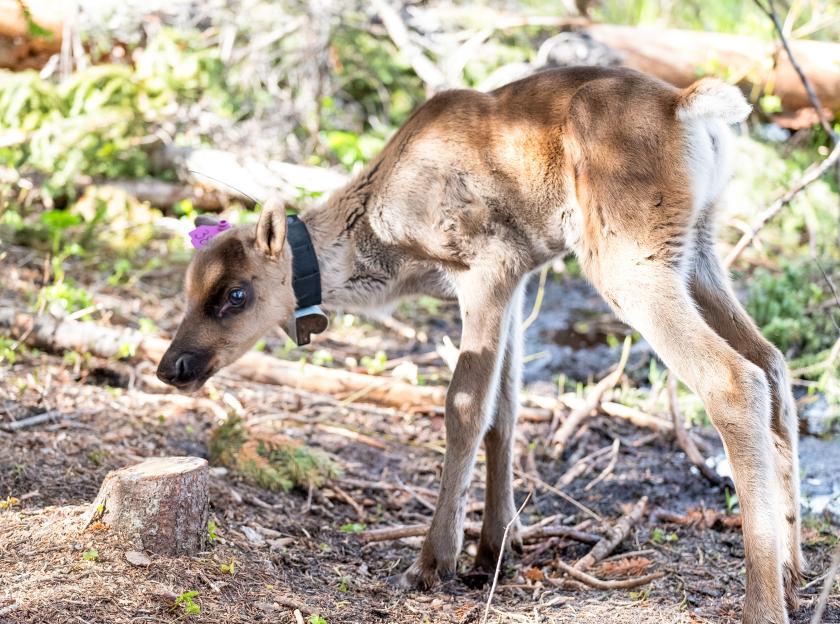
Fading into the forest
Boreal caribou roam the forest in small herds, moving between summer and winter homes that provide essential protection from predators. This seasonal movement means caribou need a lot of forest. However, industrial logging, mining and hydro developments are the primary threats to both the intact boreal forest and caribou habitat.
Although boreal caribou are protected under federal species law, governments have consistently neglected to enforce habitat protection. Every new logging, mining and hydro project puts pressure on these animals, while forest fires further reduce the terrain they can use. The only way to safeguard this species is through demanding scientifically rigorous assessments of all developments in caribou territory.
Map of boreal caribou ranges and human disturbance across Canada
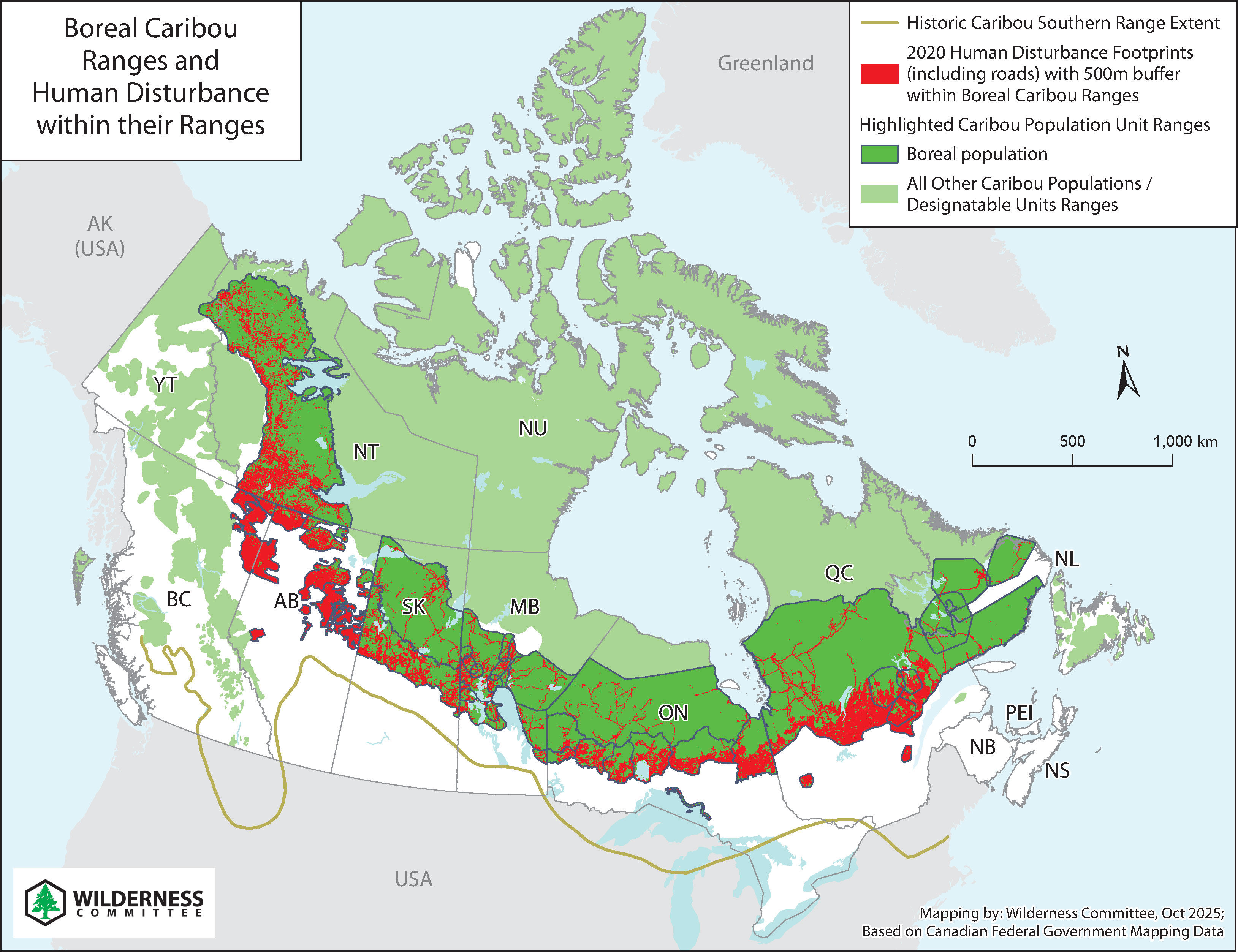
Legal preservation tools gained
Since the introduction of the federal Species at Risk Act in 2003, the Wilderness Committee has been dedicated to ensuring caribou protection. In 2012, we successfully pressured the federal government to amend and finalize a more robust recovery strategy for boreal woodland caribou.
The science supporting this care for caribou has been accepted by the federal government. It calls for at least 65 per cent of their forest home to remain undisturbed. Now, we must continue to urge provincial governments to take action and implement the necessary protections. Join us in the fight to ensure that caribou not only survive but thrive in their natural habitat.
Caribou In Crisis
Over thousands of years, caribou evolved to thrive in some of the harshest wilderness environments and their populations stretched from coast to coast to coast. But now their habitat is changing so quickly, caribou don’t have time to adapt. Those living in boreal forests are being forced into increasingly diminished and disturbed habitat. Caribou populations are listed as threatened under Canada's Species At Risk Act (SARA), and governments must act for them. Read our report on what governments across Canada have to do to safeguard boreal caribou and their wild forest home.
Campaign Gallery
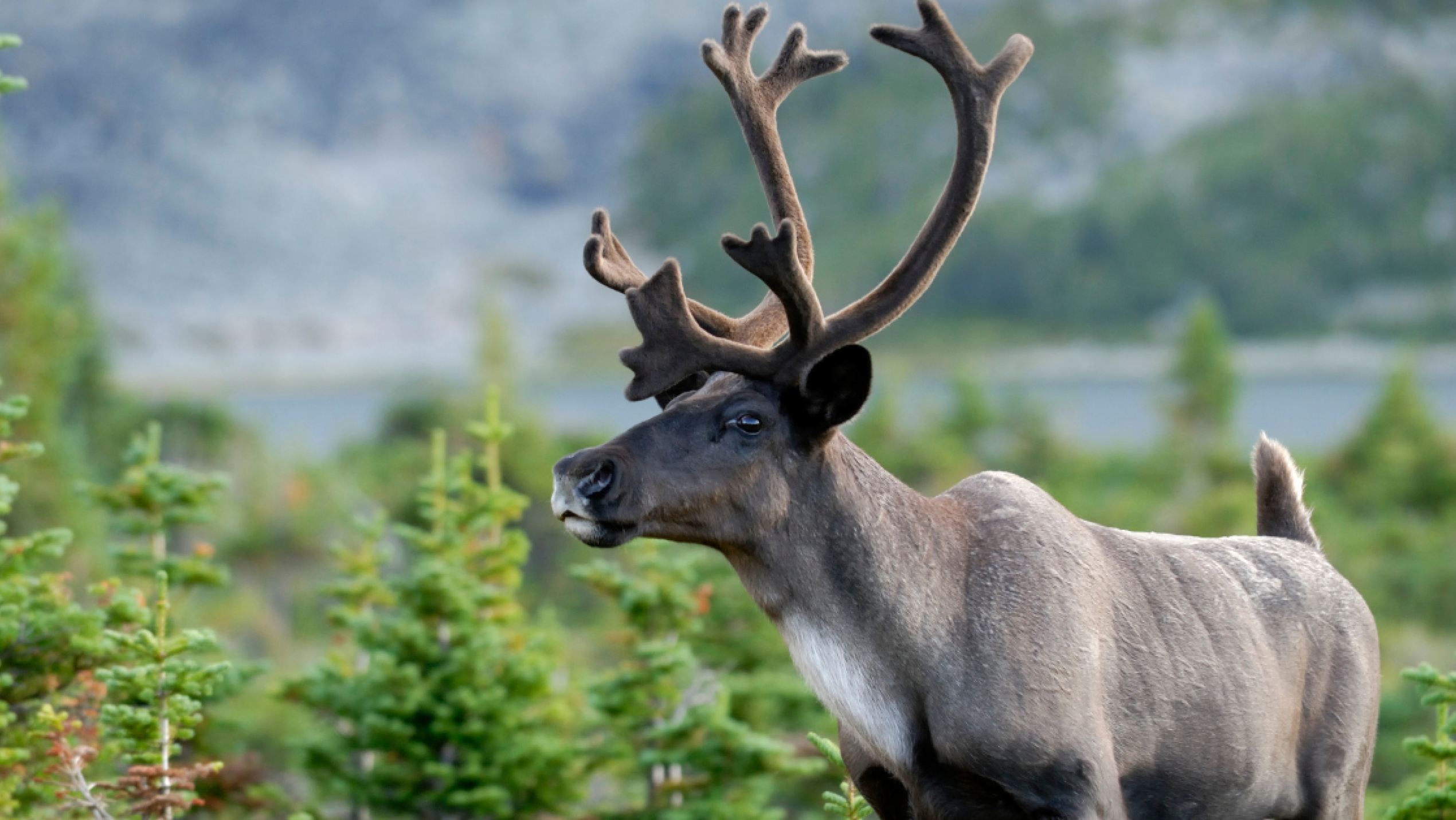
Check Out More Updates
Join Us
Don’t miss your chance to make a difference. Receive campaign updates and important actions you can take to protect wildlife, preserve wilderness and fight climate change.


